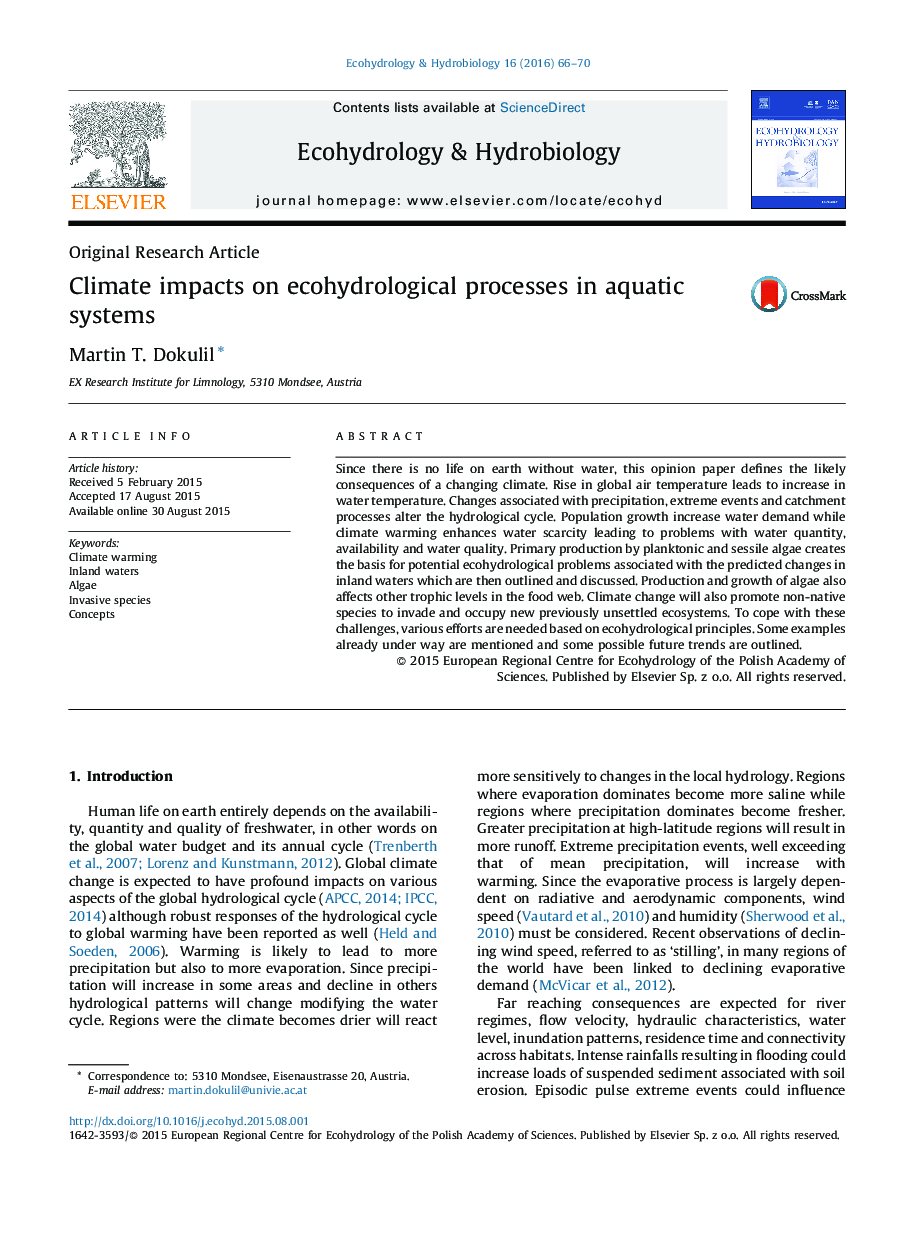| Article ID | Journal | Published Year | Pages | File Type |
|---|---|---|---|---|
| 4388012 | Ecohydrology & Hydrobiology | 2016 | 5 Pages |
Since there is no life on earth without water, this opinion paper defines the likely consequences of a changing climate. Rise in global air temperature leads to increase in water temperature. Changes associated with precipitation, extreme events and catchment processes alter the hydrological cycle. Population growth increase water demand while climate warming enhances water scarcity leading to problems with water quantity, availability and water quality. Primary production by planktonic and sessile algae creates the basis for potential ecohydrological problems associated with the predicted changes in inland waters which are then outlined and discussed. Production and growth of algae also affects other trophic levels in the food web. Climate change will also promote non-native species to invade and occupy new previously unsettled ecosystems. To cope with these challenges, various efforts are needed based on ecohydrological principles. Some examples already under way are mentioned and some possible future trends are outlined.
